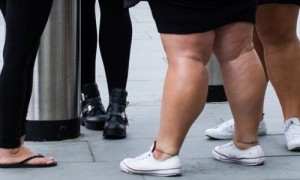Almost 200 speaker requests or events were rejected by English universities or other higher education institutions in 2020/21, new figures show.
The numbers, published by the Office for Students (OfS), show that out of 19,407 external speaker requests or events, 193 were rejected in 2020/21, compared with 94 in 2019/20, 141 in 2018/19 and 53 in 2017/18.
The figures are the highest on record since the OfS began collecting data in 2017.

Some 632 events went ahead subject to conditions.
Susan Lapworth, interim chief executive at the OfS, said the organisation would be “concerned if those cases suggest that lawful views are being stifled”.
She said: “This data shows that more than 99% of events and speaker requests were approved in 2020/21 and suggests that – in general – universities and colleges remain places where debate and the sharing of ideas can thrive.
“However, it is the case that the number and proportion of rejections sharply increased in 2020/21, with almost 200 speakers or events rejected.”
Ms Lapworth said universities are required to take steps to “secure freedom of speech within the law” and that this applies to their arrangements for external speakers, as well as to discussion and debate in lecture and seminar rooms or across academic communities.
“Topics which some may find offensive or controversial must be open to free debate in those contexts too,” she said.
She said the OfS will continue to regulate universities to ensure they are meeting their obligations, and that the body is “willing to intervene where we have concerns this may not be the case in this fundamentally important area”.
Some 47 cases were formally referred to external Prevent agencies, the OfS report also found.
Universities and other higher education providers were asked to identify any underpinning ideology for each case.
Of the 47, 15 were identified as potential extreme right-wing radicalisation, while 14 were identified as potential Islamist radicalisation.
The Higher Education Freedom of Speech Bill, currently at committee stage in the Lords, calls for universities to protect the freedom of speech of visiting speakers, with legal duties to promote free speech extended to students’ unions.
A new director for freedom of speech and academic freedom will sit on the OfS board, and the Government has said “universities, colleges and students’ unions that breach (the new) duties may face sanctions, including fines”.
Minister for skills, further education and higher education Andrea Jenkyns said: “Universities and colleges must be places that champion debate and diversity of thought and this government has warned of the chilling effect of censorship on our campuses.
“While we know that the pandemic made it difficult for many organisations to arrange speaking events, this sharp rise in rejected speakers is very concerning.
“This is exactly why our new Freedom of Speech Bill will ensure universities not only protect free speech but promote it and ensure we are protecting the rights of students and academics across the country.”







